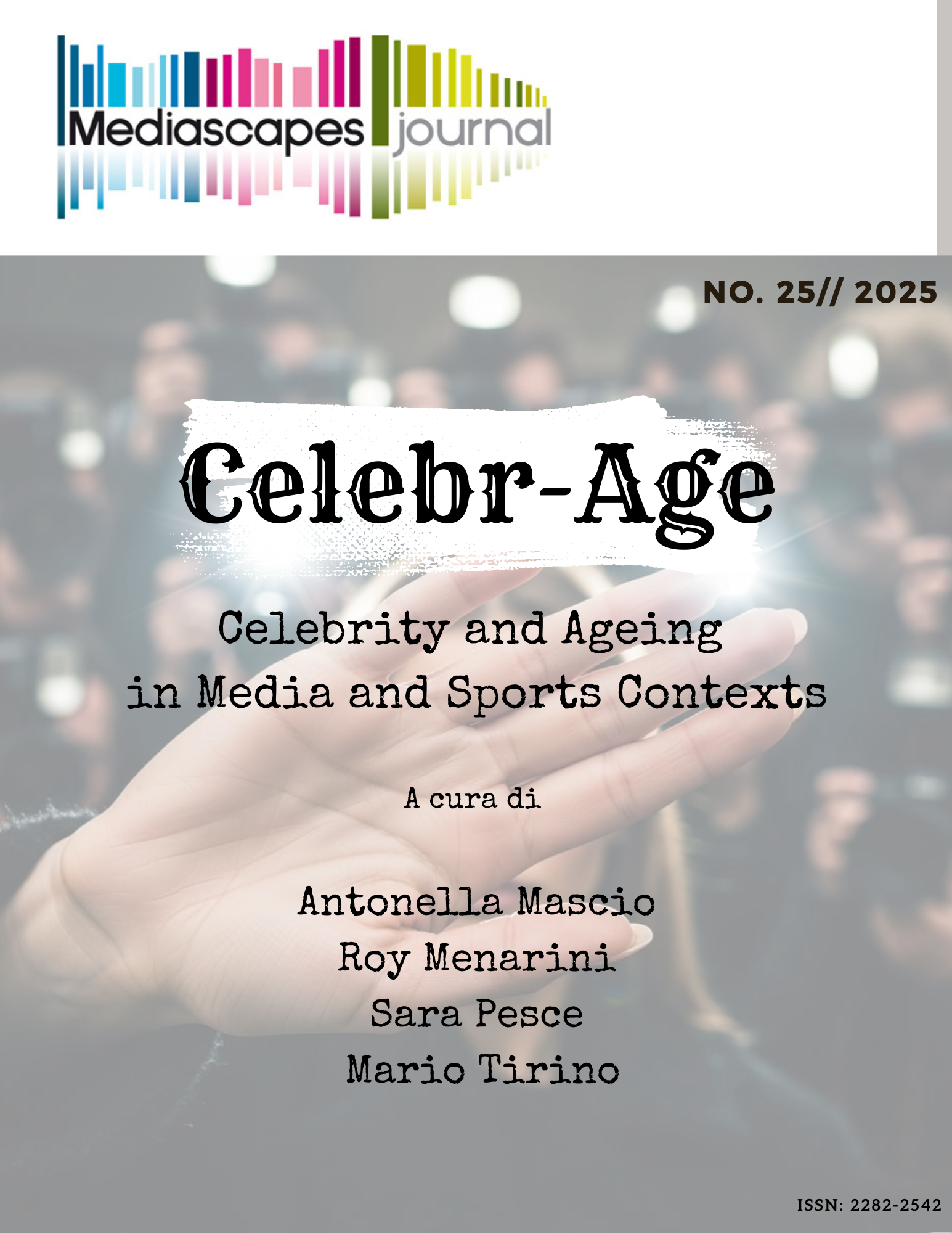Intergenerational Influence Culture
Reframing Ageing through Social Media Narratives
Parole chiave:
Ageing, Digital storytelling, Social media, Influence culture, Intergenerational communicationAbstract
This article examines how digital platforms are reshaping cultural representations of ageing, with a focus on the rise of elderly influencers as symbolic agents in an evolving influence culture. Moving beyond youth-centred narratives of digital fluency, the study explores the case of Gabriella Tupini, an octogenarian psychologist whose YouTube channel challenges ageist and gendered assumptions about technological competence, self-representation, and cultural authority. Using a qualitative case study approach that integrates content analysis and netnography, the article investigates how figures like Tupini reconfigure the logics of influence culture by employing alternative repertoires of expertise, affective resonance, and narrative intimacy. The analysis addresses three interrelated research questions: How do elderly influencers such as Tupini contribute to reconfiguring ageing narratives via social media? What discursive and relational strategies support their authority, particularly around therapeutic discourse and self-disclosure? To what extent do these practices disrupt stereotypical boundaries of age, visibility, and symbolic capital in digital ecosystems? Findings highlight how Tupini’s unscripted videos promote cognitive participation and emotional identification across generational lines, cultivating a distinctive form of intergenerational digital intimacy. Her rejection of commercial strategies and emphasis on reflective discourse contrasts with dominant metrics-driven influencer practices. Rather than embodying performative vitality or entrepreneurial self-branding, her digital presence affirms the value of experience, introspection, and psychological insight. This article advances the notion of “intergenerational influence culture” to describe emerging dynamics in which older adults not only access but reshape digital participation. While such cases offer emancipatory potential, they may also obscure structural exclusions and reinforce neoliberal ideals of productive ageing. By foregrounding alternative imaginaries and affective labour, the study contributes to critical debates on age, media, and agency in platform societies.
##submission.downloads##
Pubblicato
Come citare
Fascicolo
Sezione
Licenza

TQuesto lavoro è fornito con la licenza Creative Commons Attribuzione 4.0 Internazionale.
Gli autori che pubblicano su questa rivista accettano le seguenti condizioni:
- Gli autori mantengono i diritti sulla loro opera e cedono alla rivista il diritto di prima pubblicazione dell'opera, contemporaneamente licenziata sotto una Licenza Creative Commons - Attribuzione che permette ad altri di condividere l'opera indicando la paternità intellettuale e la prima pubblicazione su questa rivista.
- Gli autori possono aderire ad altri accordi di licenza non esclusiva per la distribuzione della versione dell'opera pubblicata (es. depositarla in un archivio istituzionale o pubblicarla in una monografia), a patto di indicare che la prima pubblicazione è avvenuta su questa rivista.
- Gli autori possono diffondere la loro opera online (es. in repository istituzionali o nel loro sito web) prima e durante il processo di submission, poiché può portare a scambi produttivi e aumentare le citazioni dell'opera pubblicata (Vedi The Effect of Open Access).


